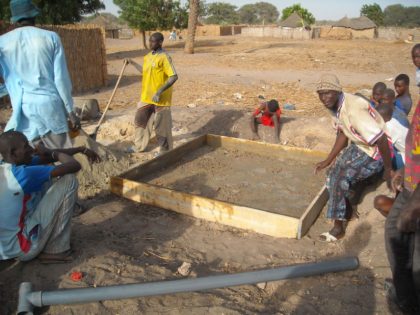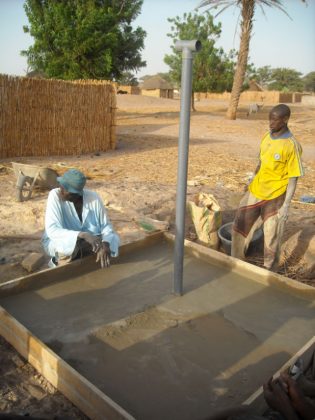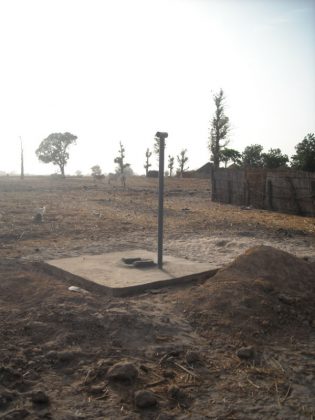 This project has been completed under the technical direction of Peace Corps Volunteer Mary Haviland. To read about the beginning of this project, CLICK HERE.
This project has been completed under the technical direction of Peace Corps Volunteer Mary Haviland. To read about the beginning of this project, CLICK HERE.
This project was to build ten latrines for households in the village.
Mary reports:
The final latrine in Mbul Waly has been completed.
All the supplies were bought from local hardware stores and transported to the village. The cement and pipes were brought by car and the iron was transported by horse-drawn cart.
The first step in the project was building the iron frames. These are used in the cement platform on top of the douche and are 2m x 2m. The mason cuts the iron and then ties it together with wire.
Each house dug the hole for their latrine, and they were also responsible for bringing in small rocks and the sand that is used to mix in with cement.
The cement work takes a day to complete. The mason starts in the morning assembling the wood frame. The iron frame is placed inside and cemented in, leaving 2 holes as spaces for the ventilation pipe and the place for urinating/defecating. This is left to dry until the late afternoon.
In the afternoon, a second layer of cement is put on the platform, the ventilation pipe is put in, and the standing place of the latrine is made. The entire thing dries overnight and is ready for use in the morning. One mason can complete 2 latrines per day.
After the masonry work is done, the families usually build a socket fence (out of corn stalks or millet stocks) around the latrine for privacy.
Mary reports on the reaction of the community:
Everyone has been really happy to receive the latrines and I have been hearing a lot of thank you’s. Since everyone now has latrines to use, the community is a lot cleaner.
We are grateful to The Soneva SLOW LIFE Trust for providing the funding for this successful project.

